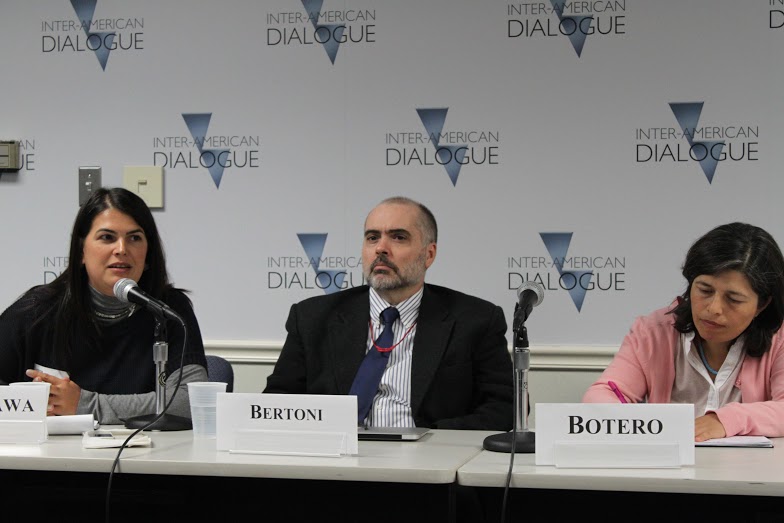Guest post by Silvia Chocarro Marcesse
There is no question media pluralism and diversity are crucial for strong democracies. The pressing question is how to guarantee it. According to a group of Latin American experts that met in Washington, DC, the media environment in the region needs some regulation–but without undermining media independence. The challenge is how to make this equation work.
The goal of a conference “Challenges to Freedom of Expression: A Hemispheric Agenda”, organized by the Inter-American Commission on Human Rights, IACHR, and Inter-American Dialogue on February 11, was to contribute to the work plan of the recently named IACHR special rapporteur on freedom of expression, Edison Lanza.
While Lanza’s strategy includes looking at issues such as safety of journalists, impunity for crimes against the press, censorship, media concentration, decriminalization of defamation, access to information, freedom of expression of specific groups, and Internet rights, the conference focused on media legislation in Latin America to promote diversity and pluralism, and the impact of the Internet.
The event reviewed the media laws in Argentina, Ecuador, and Uruguay. Experts agreed that the Uruguayan experience might become a “reference” for other countries discussing media legislation such as Brazil, Chile, Colombia, Costa Rica, and Peru. Uruguay is notable because of its multi-stakeholder and participatory process, something the experts agreed appeared to be lacking in Argentine and Ecuadoran context. It resulted in a historical consensus among the government, media companies, academia, and civil society to give a green light to a new law that guarantees media diversity and pluralism under the monitoring of an independent regulatory body.
Experts proposed a list of basic ingredients to ensure a healthy media environment, such as independence, diversity, pluralism, quality journalism, self-regulation, nontargeted government advertising in local media, and a strong civil society able to monitor the media as well as an independent regulatory body for broadcast media.
Internet challenges were also discussed. One specific recommendation was for media actors to take advantage of the Internet Governance Forum (IGF), which will be held in Brazil in November. It is time, they affirmed, to put regional issues on the agenda such as net neutrality, access to the Internet, censorship, anonymity, and Internet rights.
Read more: https://www.ifex.org/americas/2015/02/17/ley_comunicacion_evento/
Silvia Chocarro Marcesse is a journalist and freedom of expression consultant @silviachocarro.


Comments (0)